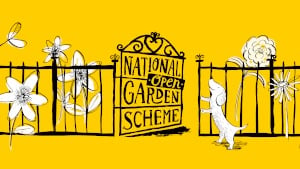About 21 Arlington Square
The pond is home to some minnows and an army of frogs. The plant-covered walls are favoured by nesting great and blue tits, sparrows, wrens, robins and blackbirds. The flower beds have been built up over the years using mainly home-made compost and leaf mould, and the bricks holding back the earth and the York stone were reclaimed from skips and from friends. The rust and black spot on the roses demonstrate this is an organic garden.
.

.jpg)
.jpg)
.jpg)
.jpg)
.jpg)
.jpg)
.jpg)
.jpg)
.jpg)
.jpg)
.jpg)
.jpg)


.jpg)
.jpg)
.jpg)
.jpg)
.jpg)
.jpg)
